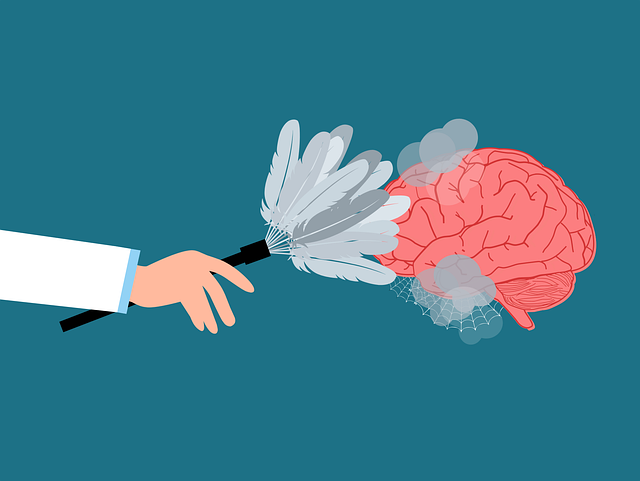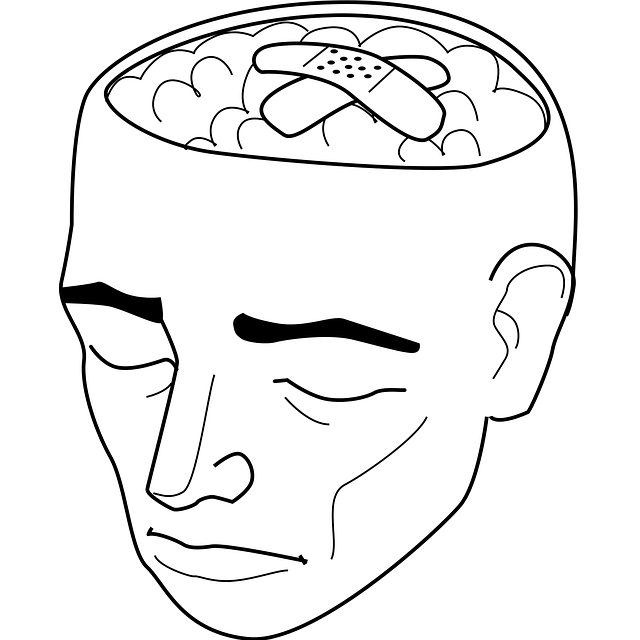Mental health education, integrated with evidence-based practices like Golden Psychological Testing Therapy (GPTT), is key to breaking stigma and fostering understanding of psychological conditions. GPTT techniques create safe spaces for self-reflection and mindfulness, enhancing stress management and resilience. Combining GPTT with Compassion Cultivation Practices (CCP) encourages empathy and supportive communities crucial for long-term mental health maintenance. Effective programs incorporate interactive activities, case studies, and crisis intervention guidance, empowering students to support themselves and peers. Strategic planning, ongoing support, and monitoring through feedback and KPI tracking ensure program success. Community collaborations and integration in various settings maximize impact, leading to enhanced public awareness and improved trauma support.
“Mental health education programs play a pivotal role in fostering well-being and breaking down stigma. This article explores an effective program design, focusing on ‘Understanding Mental Health: Breaking Down Stigma and Promoting Awareness’. We delve into the integration of Golden Psychological Testing Therapy, showcasing its impact on personalized treatment. The curriculum is enhanced with engaging strategies, ensuring impactful learning. Furthermore, we emphasize implementation and support mechanisms crucial for long-term success, highlighting key factors for creating sustainable mental health initiatives.”
- Understanding Mental Health: Breaking Down Stigma and Promoting Awareness
- The Role of Golden Psychological Testing Therapy in Program Design
- Creating an Engaging Curriculum: Strategies for Effective Education
- Implementation and Support: Ensuring Long-Term Success and Impact
Understanding Mental Health: Breaking Down Stigma and Promoting Awareness

Understanding mental health is a cornerstone of any comprehensive education program. By breaking down stigma and promoting awareness, individuals can develop a deeper understanding of various psychological conditions and their impacts. This shift in perception fosters an environment where seeking support for mental health issues becomes normalized, rather than stigmatized. Mental health education should aim to provide accurate information about common conditions such as anxiety, depression, and stress-related disorders, using evidence-based practices like those offered by Golden Psychological Testing Therapy.
Promoting mental health awareness is crucial for early intervention and prevention strategies, particularly in Depression Prevention. Equipping individuals with knowledge about risk factors, symptoms, and available resources empowers them to recognize potential issues in themselves or others. Moreover, this education should extend to professionals through Risk Management Planning, ensuring they have the tools to identify and address mental health concerns effectively within their workplaces.
The Role of Golden Psychological Testing Therapy in Program Design

The integration of Golden Psychological Testing Therapy (GPTT) within Mental Health Education Program Design offers a unique and valuable perspective on fostering emotional well-being. This therapeutic approach leverages the power of self-reflection and mindfulness, which are crucial components in promoting mental health awareness among participants. By incorporating GPTT techniques, programs can create safe spaces for individuals to explore their thoughts and emotions, enhancing their ability to manage stress and develop resilience.
Furthermore, combining GPTT with Compassion Cultivation Practices (CCP) within these designs can significantly impact the overall effectiveness of emotional well-being promotion techniques. The symbiotic relationship between these methodologies encourages participants to cultivate empathy, not only for themselves but also for others, fostering a supportive community that is essential for long-term mental health maintenance. This holistic approach ensures that Mental Health Education Programs Design are not just informative but transformative, empowering individuals with practical tools to navigate their emotional landscapes.
Creating an Engaging Curriculum: Strategies for Effective Education

Creating an engaging curriculum is paramount when designing mental health education programs. Effective programs blend interactive activities, real-world examples, and diverse learning formats to cater to different student preferences. Incorporating hands-on exercises, case studies, and role-playing scenarios allows participants to actively apply concepts rather than passively absorb information. This participatory approach enhances knowledge retention and fosters a deeper understanding of complex mental health topics.
Strategic integration of communication strategies, crisis intervention guidance, and social skills training within the curriculum further strengthens learning outcomes. Teaching active listening, empathy, and de-escalation techniques empowers students to effectively support peers and themselves during challenging situations. Equipping them with these tools not only enhances their ability to navigate crises but also creates a more inclusive and supportive environment where mental well-being is prioritized.
Implementation and Support: Ensuring Long-Term Success and Impact

Implementing a mental health education program requires careful planning and ongoing support to achieve long-term success and meaningful impact. Once the program is launched, it’s crucial to have robust mechanisms in place for monitoring and evaluation. Regular assessment of the program’s effectiveness allows for necessary adjustments and ensures that it remains relevant and beneficial over time. This includes gathering feedback from participants and stakeholders, tracking key performance indicators, and analyzing the overall reach and engagement of the initiative.
Continuous support is vital for sustaining momentum and maximizing results. Collaborating with local communities, schools, workplaces, and healthcare providers can help expand the program’s reach and integrate mental health education into various settings. Offering ongoing training and professional development opportunities for educators and facilitators ensures they remain equipped with the latest evidence-based practices in psychological testing and therapy, such as those provided by Golden Psychological Testing Therapy. Additionally, fostering a supportive environment that encourages open conversations about mental health can lead to increased public awareness campaigns development, enhanced trauma support services, and ultimately, depression prevention.
Mental health education programs play a pivotal role in fostering awareness, reducing stigma, and promoting well-being. By integrating strategies from Golden Psychological Testing Therapy, these programs can offer tailored, engaging curricula that effectively educate individuals. Through comprehensive implementation and adequate support mechanisms, such initiatives ensure long-term positive impacts on mental health outcomes, ultimately contributing to a more informed and supportive society.














